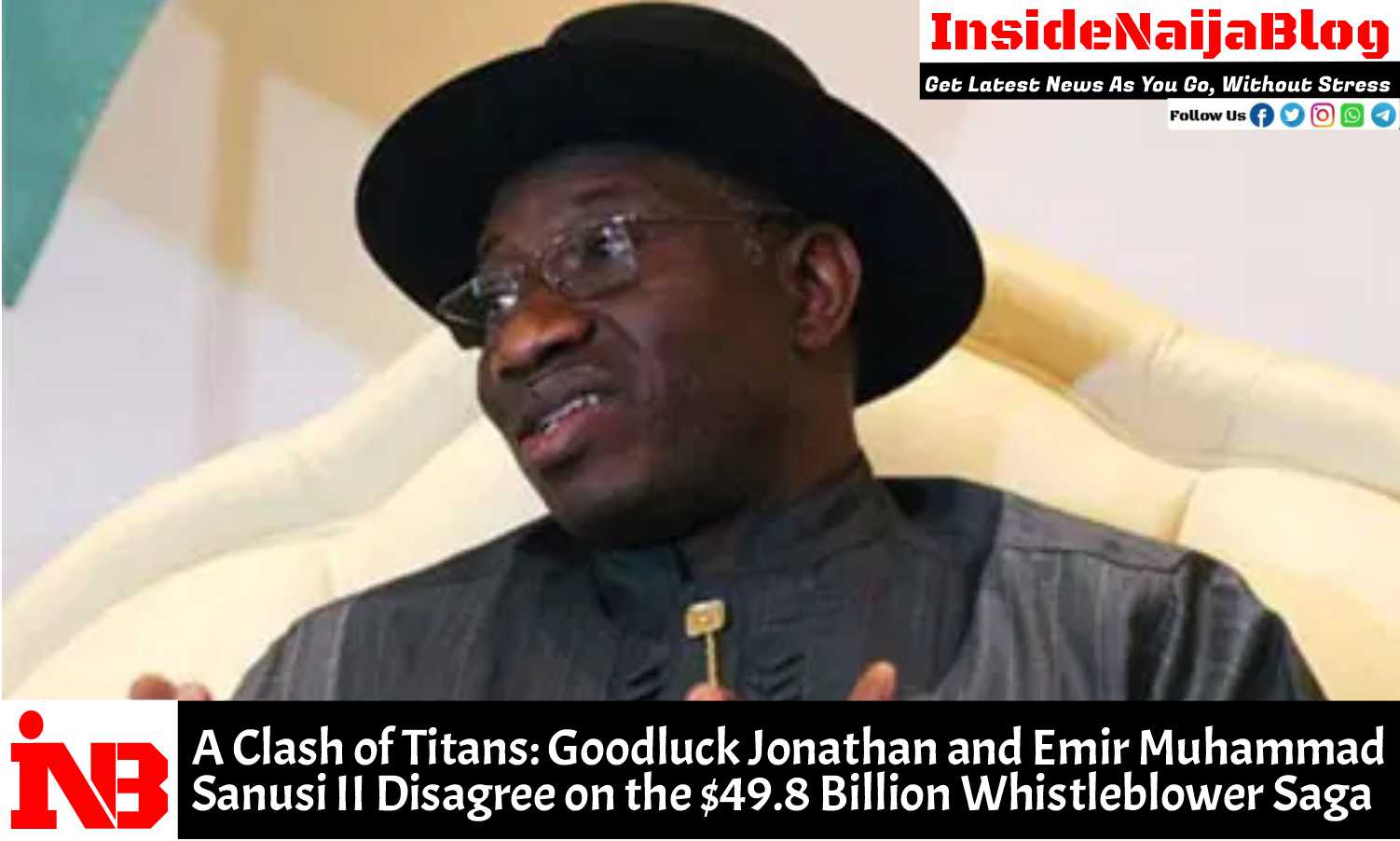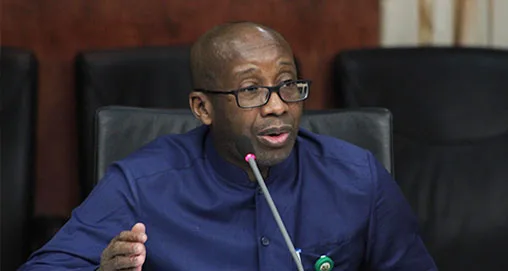In a captivating turn of events at the recent launch of the book “Public Policy and Agents Interests: Perspectives from the Emerging World,” a spirited debate erupted between former President Goodluck Jonathan and the Emir of Kano, Muhammad Sanusi II, the ex-governor of the Central Bank of Nigeria (CBN). The central issue at hand? The contentious dismissal of Sanusi during Jonathan’s presidency, which has continued to spark debate and controversy in Nigeria’s political landscape.
The disagreement ignited when Sanusi, who co-authored a book with former Finance Minister Shamsudeen Usman, suggested that his removal from office was directly tied to his whistleblowing activities concerning an alleged $49.8 billion that had gone missing from the government’s coffers during Jonathan’s tenure. This claim has lingered in public discourse, with many debating its implications for accountability and governance in Nigeria.
In a robust defense of his administration, Jonathan addressed the audience with a measured tone, acknowledging the gravity of the situation while asserting his perspective. He clarified that Sanusi was not actually sacked but rather suspended due to a query raised by the Financial Reporting Council (FRC) regarding the Central Bank’s expenditures. Jonathan emphasized that there were “serious infractions” that warranted investigation, suggesting that had Sanusi’s term not expired, he could have potentially returned to his role.
“Let me mention that I do not agree completely with some issues raised by one of the contributors. But I don’t intend to join issues because he is our royal father. And he is here,” Jonathan stated, a diplomatic approach to the sensitive subject. He continued, “On the issue of $49.8 billion, till today, I am not convinced that the Federal Government lost such an amount. Our budget that year was $31.6 billion. For a country with that budget to lose about $50 billion and salaries still being paid, it simply doesn’t add up.”
Jonathan elaborated on his disbelief regarding the initial figure proposed by Sanusi, highlighting the confusion surrounding the alleged missing funds as the numbers fluctuated from $49.8 billion to $20 billion and then to $12 billion. This inconsistency, he argued, weakened the validity of the claims made by Sanusi and others. He even recounted how, during a conversation with then-German Chancellor Angela Merkel, he had to explain that such an enormous sum could not simply vanish from a struggling nation like Nigeria.
Sanusi, undeterred by Jonathan’s assertions, took to the podium after the former president’s comments. With a mix of humor and seriousness, he reiterated, “My boss sacked me. I was constructively dismissed.” His tone suggested a respectful acknowledgment of his former superior while standing firm in his conviction that his removal was indeed a consequence of his whistleblowing activities.
Adding depth to the discussion, Sanusi spoke not only about the past but also about the current state of Nigeria’s economy, particularly in relation to the recently established Dangote Refinery. He lamented that instead of leveraging this significant opportunity to end fuel imports, the nation seemed to be hindering progress due to vested interests. “For years, the Nigerian state has been captured by rent-seekers,” he asserted, emphasizing the need for a fundamental shift in priorities for the nation to flourish.
The event also served as a platform for unveiling the Shamsuddeen Usman Foundation, established in honor of Dr. Usman by his children. This foundation aims to promote education and harness the potential of artificial intelligence in Nigeria, echoing the aspirations of many who seek to drive the country towards a more promising future.
As the evening unfolded, it was clear that the clash between Jonathan and Sanusi was not merely a reflection of past grievances but also a commentary on Nigeria’s ongoing struggle with transparency, accountability, and governance. The interplay of their perspectives underscored the complexities of leadership in a nation rich in resources yet often stymied by mismanagement and corruption.
In this intricate tapestry of Nigerian politics, the voices of former leaders like Jonathan and Sanusi continue to resonate, offering lessons and insights that are as relevant today as they were during their tenures. The discussion, while rooted in a contentious past, remains a crucial part of Nigeria’s journey towards a brighter, more accountable future.




